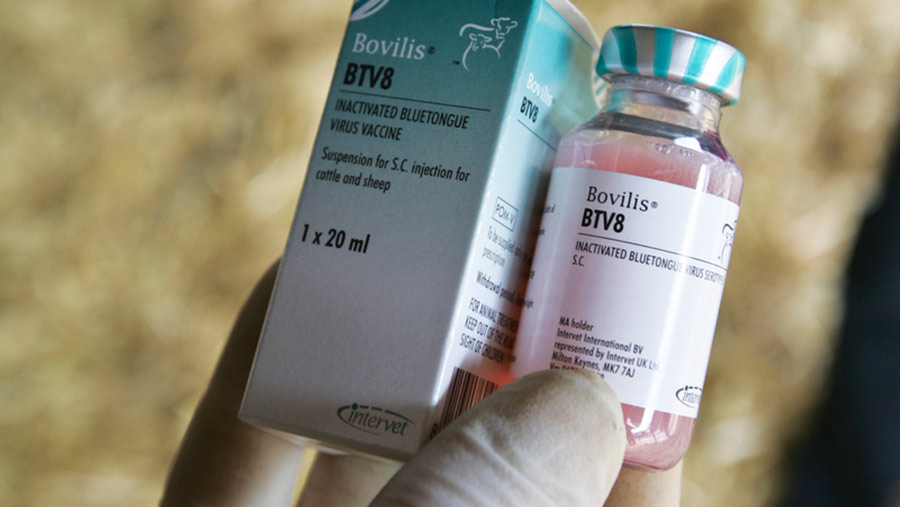Fears raised over bluetongue vaccine availability
 ©Tim Scrivener
©Tim Scrivener Drug companies are nervous about producing bluetongue vaccine that may not get used in the UK in the event of an outbreak of the disease, the National Sheep Association has warned.
Low vaccine uptake in the past has made pharmaceutical companies reluctant to stockpile large amounts of a vaccine against the disease, said NSA chief executive Phil Stocker.
Production of bluetongue vaccine was subsidised by the government following the last UK outbreak of the virus in 2007.
But it was left with 7.5m doses of the vaccine on its hands after fewer farmers than expected chose to treat their livestock.
See also: Hundreds ditch bluetongue vaccine over breeding fears
The NSA says it understands that the French government owns all existing stocks of vaccine, which could be used to help the country to contain the bluetongue BT-V virus.
But if an outbreak did occur in the UK later this year, similar to the current bluetongue outbreak affecting sheep flocks in France, then they must be prepared to react, Mr Stocker added.
“The vaccine takes some time to produce so we must be responsible as an industry, think well ahead about the risk to our flocks and herds, and ensure clear communication between us, government and animal health companies.”
With the movement of live animals tightly controlled, the likely source of introduction to the UK will be infected midges coming across the Channel from France, with the level of risk dependent on weather conditions, temperatures and the extent of virus circulation in France.
The NSA is calling for the whole livestock industry to be vigilant to bluetongue over the coming months and given the current unavailability of vaccine to have open dialogue about potential uptake.
“As there are currently no stocks of vaccine available here in the UK we would expect vaccine manufacturers to be watching this situation very closely,” said Mr Stocker.
NSA is in contact with the relevant companies and, while it is difficult to make predictions, we need a clear steer from our members and other sheep farmers on how we proceed.
Mr Stocker said: “In the meantime, we have discussed the situation with colleagues in the Sheep Veterinary Society and collectively, while there is absolutely no need to panic, we would encourage all sheep and cattle farmers to be aware of the risk we face, contacting their vet immediately if there is any suspicion regarding their stock.
“Farmers should be extra vigilant given that most stock are likely to be immunologically naive to the virus, and that experience in France suggests a low level of clinical signs.”
Defra has said vaccination levels of 80%, 50% or even 25% in bovine and ovine species by 1 May 2016 would have a significant impact on the rate of spread of disease – but there is little cost incentive for individual farmers to vaccinate at present, and no vaccine available to do so.
